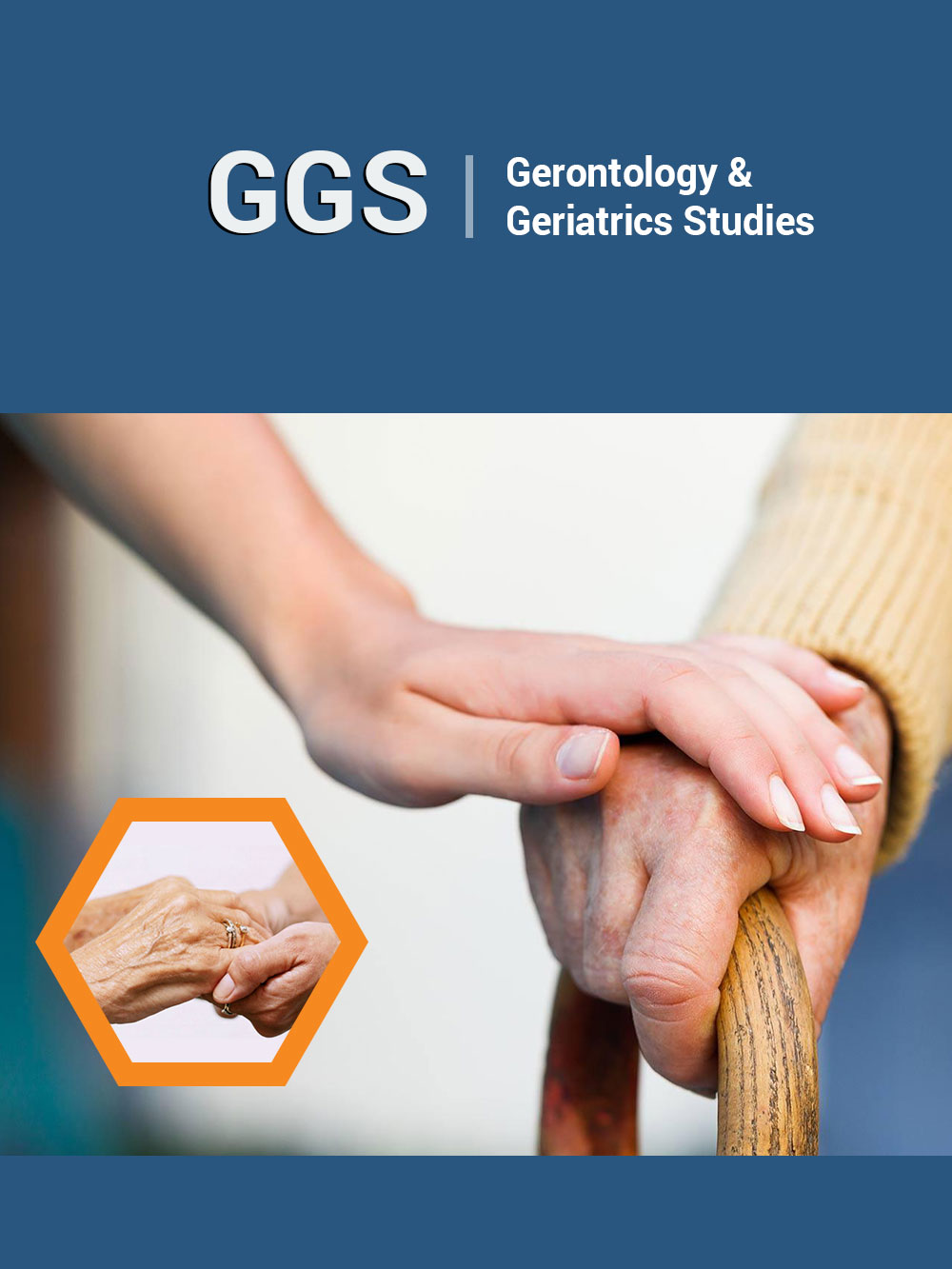- Submissions

Full Text
Gerontology & Geriatrics studies
How Could We Train Healthcare Professionals the Skills of Accompany, Listening, Empathy Along with the Elderly Patients?
Ya Lie Ku*
Fooyin University, College of Nursing, Taiwan
*Corresponding author: Ya Lie Ku, Associate Professor, Fooyin University, College of Nursing, Taiwan
Submission: January 10, 2018; Published: January 11, 2018

ISSN : 2578-0093Volume1 Issue5
Opinion
The new era healthcare professional students growing in the democratic and freedom society with the self-centered and ego valued characteristics. Additionally, the decreasing birth rates and increasing elderly population have expanded the generation gap. Furthermore, the influences of technology and cell phone have reduced the chance of verbal communication between younger healthcare professional groups and elders. Based on the above reasons, how could we train our healthcare professional students the abilities of accompany, listening, and empathy for caring the elders? It has become the important issue for the long-term care services [1-3].
For the accompany skill, the functional and perceptual accompanies were identified in the study and the previous means that the 36 nursing students recognized the consequences or benefits for the ones being accompanied; while the later means the feelings gained by the ones conducting the accompany [4].
The secrets of fulfilling the functional and perceptual accompanies are inter subjectivity and being with indicating by Hsieh & Wang [3] as two major themes for the concept of accompany, including coexistence and presence with interaction. For the listening skill, Shipley [5] identified the characteristics for assurance of the patients' messages being heard and realized included silence, non-judgment and accepting the patient as the unique, attention on their verbal and non-verbal communication, and empathy as well as reflection, summaries and feedback. For the empathy skill, Yu & Kirk [6] systematically reviewed 29 studies on empathy from 1987 to 2007 and identified that the majority of studies were descriptive designs focused on outcomes evaluation of the patients by the different 20 assessment scales without the rigor standards. In terms of outcomes evaluation, Derksen et al. [1] systematically reviewed 964 articles and identified that empathy could reduce the anxiety and distress, positive relationship with the enabling of the patients, as well as a good connection between physician empathy and patient satisfaction. Furthermore, Sulzer et al. [7] suggested the future study of empathy would be focused on the relationship in terms of the process of engaging with the persons. In summary, how could we train healthcare professionals the skills of accompany, listening, and empathy along with the elderly patients? Price [8-10] proposed a series of defining, implementing, evaluating, and improving a practice skill that could guide the healthcare professionals to construct the integrate process of accompany, listening, and empathy skills. Additionally, Gridman [2] proposed that not only the literature has identified the storytelling as the effective learning and teaching strategy, but his phenomenological approach interviewing study also indicated that listening stories from the patients is the strategy of accessing the resources and knowledge from 12 nursing, midwifery, and social work students. Therefore, the effective way to train healthcare professionals is through empathetic listening storytelling from the elderly patients while accompanying with them by following a series of guidelines for the practice skills [8-11].
References
- Derksen, Bensing F, Lagro-Janssen A (2013) Effectiveness of empathy in general practice: a systematic review. Br J Gen Pract 63(606): e76-e84.
- Gridman J (2013) Listening to stories: Valuing knowledge from patient experience. Nurse Educ Pract 13(3): 192-196.
- Hsieh MH, Wang HH (2011) The concept and implications on presence of inter subjective nurse-patient relationship. TZU Chi Nursing Journal 10(4): 28-63.
- Ku Y L (2017) What are the professional skills for spiritual nursing? JOJ Nursing & Health Care 1(2): 1-2.
- Shipley SD (2010) Listening: A concept analysis. Nursing Forum 45(2): 125-134.
- Yu J, Kirk M (2008) Measurement of empathy in nursing research: systematic review. J Adv Nurs 64(5): 440-454.
- Sulzer SH, Feinstein NW, Wendland CL (2016) Assessing empathy development in medical education: a systematic review. Med Educ 50(3): 300-310.
- Price B (2011) Skill analysis part 1: defining and implementing a practice skill. Nursing Standard 26(17): 50-55.
- Price B (2012) Skill analysis part 2: evaluating a practice skill. Nurs Stand 26(18): 51-57.
- Price B (2012) Skill analysis part 2: improving a practice skill. Nursing Standard 26(19): 49-54.
- Ku Y L, Cheng W J, Yang WP (2017) Exploring the definition of spirituality from BSN students in Taiwan. Journal of Nursing & Patient Care 2(1):1-3.
© 2018 Ya Lie Ku. This is an open access article distributed under the terms of the Creative Commons Attribution License , which permits unrestricted use, distribution, and build upon your work non-commercially.
 a Creative Commons Attribution 4.0 International License. Based on a work at www.crimsonpublishers.com.
Best viewed in
a Creative Commons Attribution 4.0 International License. Based on a work at www.crimsonpublishers.com.
Best viewed in 







.jpg)






























 Editorial Board Registrations
Editorial Board Registrations Submit your Article
Submit your Article Refer a Friend
Refer a Friend Advertise With Us
Advertise With Us
.jpg)






.jpg)













.bmp)
.jpg)
.png)
.jpg)














.png)

.png)



.png)






